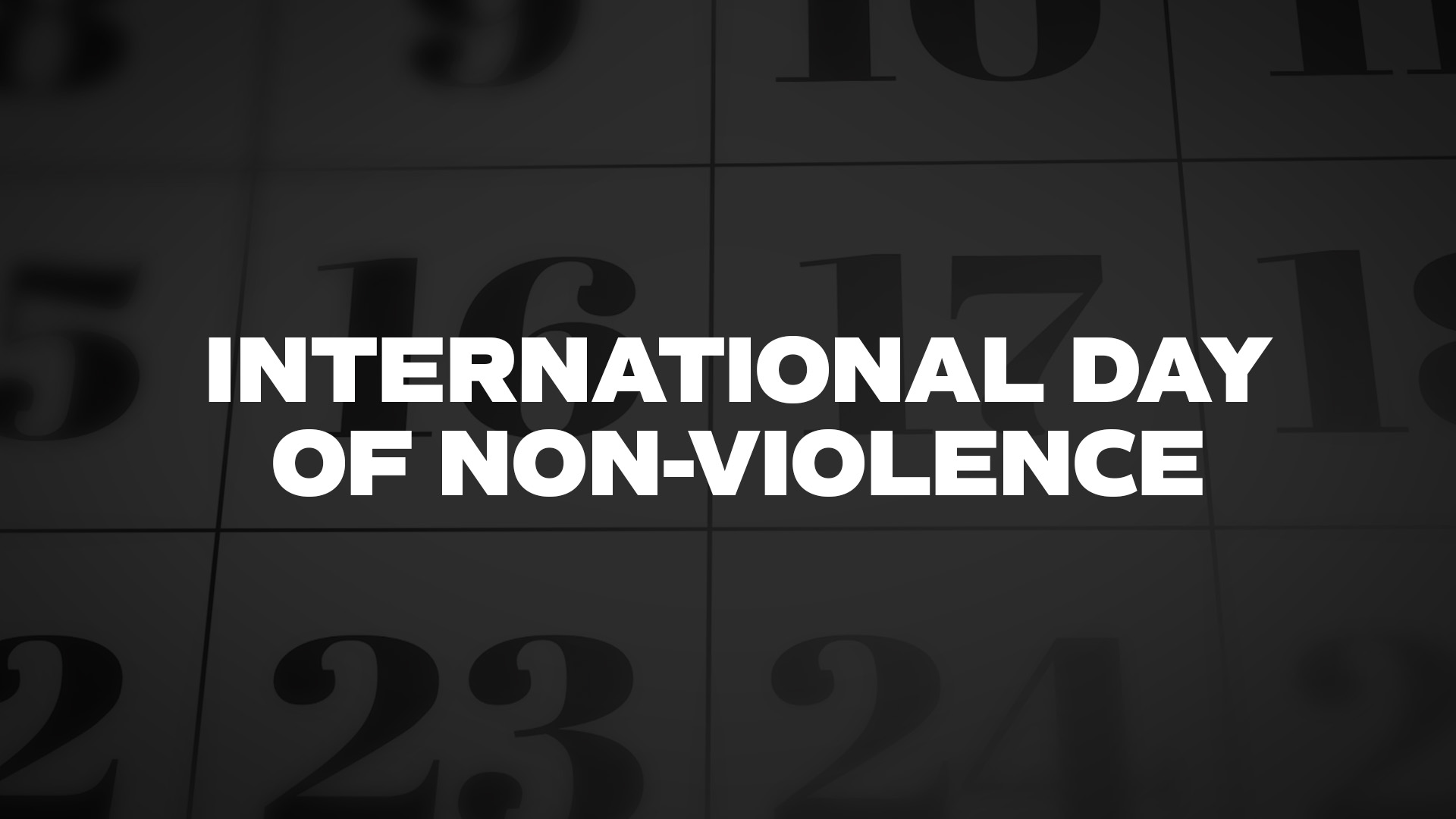International Day of Non-Violence is observed annually on October 2nd to commemorate the birth anniversary of Mahatma Gandhi, the leader of India’s independence movement and a champion of non-violent resistance. The day aims to promote non-violence as a means of resolving conflicts and achieving peace. It is marked by educational events, peace rallies, and other activities promoting the principles of non-violence.
#HASHTAGS
#InternationalDayOfNonViolence
International Day Of Non-Violence is celebrated annually on October 2nd
| Year | Date | Day |
|---|---|---|
| 2022 | October 2 | Sunday |
| 2023 | October 2 | Monday |
| 2024 | October 2 | Wednesday |
| 2025 | October 2 | Thursday |
| 2026 | October 2 | Friday |
| 2027 | October 2 | Saturday |
| 2028 | October 2 | Monday |
| 2029 | October 2 | Tuesday |
| 2030 | October 2 | Wednesday |
| 2031 | October 2 | Thursday |
| 2032 | October 2 | Saturday |
| 2033 | October 2 | Sunday |
| 2034 | October 2 | Monday |
| 2035 | October 2 | Tuesday |
